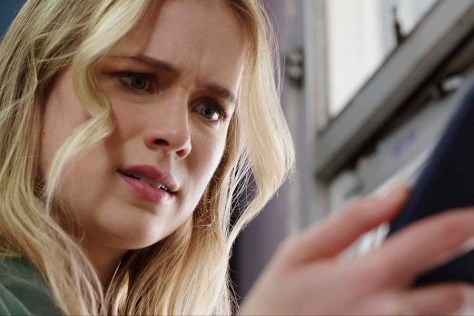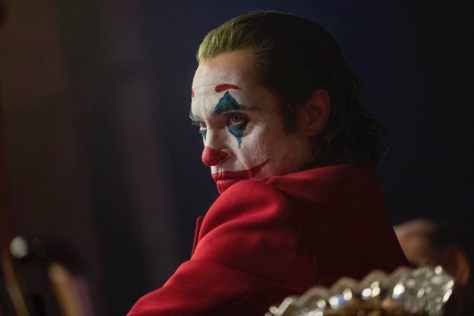
Out in time for Halloween, the new teen horror flick Countdown stars Elizabeth Lail as Quinn, a bright young nurse on her way to becoming an RA. While treating a patient, she discovers that he’s downloaded an app called Countdown that allegedly tells the user, down to the very second, when they will die. On a lark, she downloads it herself and is shocked to find out that her ticker only has three days left, which is made even more alarming since her patient’s countdown turns out to be deadly accurate. Searching for answers, she meets Matt (Jordan Calloway), whose phone tells him he’ll go mere hours before Quinn does and the two set out to find the supernatural force behind the ominous app.
Despite having a fun, high concept premise, the film is essentially lifting core conceits from two other franchise favorites of the genre. It borrows both the ticking clock concept crystallized in The Ring (although our characters here don’t even get the full seven days) and the idea of “death having a design” from Final Destination. Unfortunately, it doesn’t have the horrifying imagery of the former and thanks to the PG-13 rating, it also lacks the gruesome, Rube Goldberg-esque kills of the latter. Instead, we mainly observe characters looking down incredulously at their phones as the seconds tick by, which is about as interesting as it sounds.
In Countdown, nearly every character can’t resist the temptation that the titular app presents and immediately checks when their number will be up without a moment’s hesitation. While I don’t doubt there would be some curious individuals who would give it a shot, the film exists in a universe in which everyone can’t stop talking about this app. The screenplay by writer/director Justin Dec is packed with tin-eared dialogue about how we interact with smartphones and given how prevalent technophobia has been in the horror genre recently (this year’s Wounds also revolves around a killer cell phone), his script leaves much to be desired. It also pads the paperthin story with unnecessary subplots like one about a lecherous doctor that seems shoehorned in from the Time’s Up movement.
Despite all this, the movie isn’t quite as poor as it could have been and the fact that it’s simply derivative and boring means that it will ultimately be more unmemorable than if it had been worse. Even in one-dimensional roles, the performers seem to be doing what they can to leave an impression. Lail does a fine job as a increasingly determined heroine and will hopefully have more luck in the future if she chooses to continue down the scream queen route. PJ Byrne and Tom Segura doggedly score some laughs in their comic relief roles, including a dig at the Marvel Cinematic Universe that genuinely caught me off guard.
Ultimately, the film just can’t seem to rise above the genre conventions that plague it at every turn. We get dumb teenagers making dumb decisions, we get priests reciting passages of Latin within a magic circle of demon-busting powder and a computer-generated creature so cliche that I wouldn’t be surprised if it was the default setting for “death monster” within Photoshop. If you’re a teenager who’s looking for a scare or two in a theater around Halloween, then you could probably do worse than Countdown. Other than that, I can’t see much of a reason not to stay at home and let its timer run down to zero.
Score – 2/5
Coming to theaters this weekend:
Terminator: Dark Fate, starring Linda Hamilton and Arnold Schwarzenegger, retroactively serves as a sequel to Terminator 2 that finds Sarah Connor teaming up with a cyborg to protect a young girl.
Harriet, starring Cynthia Erivo and Leslie Odom Jr., tells the true story of Harriet Tubman as she escapes from slavery and leads many other slaves to freedom via the Underground Railroad.
Motherless Brooklyn, starring Edward Norton and Bruce Willis, is Norton’s passion project 20 years in the making about a private investigator with Tourette syndrome solving crimes in 1950s New York.
Reprinted by permission of Whatzup








